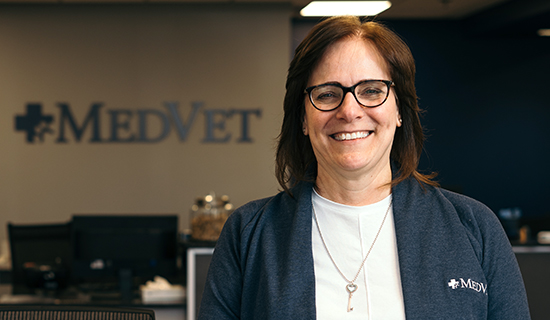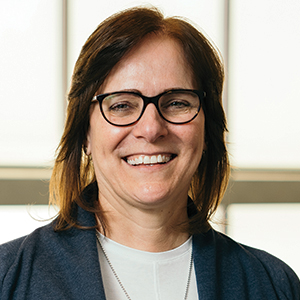As an added benefit, it brought people from across the country closer together. They built relationships in which they reach out more and share best practices.
Homing in on the employee experience drove visible results. Lehmkuhl says the next step for the organization is learning how to stay focused consistently, in order to execute great ideas in an elite manner.
This is a lesson MedVet has been given repeatedly, but it is something it still struggles with.
“You can’t layer on too many things at once,” she says, adding that it takes time to roll things out across the organization, as change is never easy.
The leadership team and health care steering committee need to keep asking, “Is this something to dive in on? Should it be identified as problem for later, or should the organization look for a bigger issue that might solve both problems?”
“We’re great at getting excited about good ideas, but we need to reserve our efforts for the great ideas, because again, we’ve got a team that is process-improvement minded,” Lehmkuhl says. “Anybody says, ‘Oh, this would be better,’ and we are all ready to dive in, and you can’t do that at our size and actually execute, because you won’t bring the team with you.”
Takeaways:
- At each stage of your career, identify where to put your focus.
- Employees drive your strategies, so take care of them.
- Don’t trust your corporate culture to luck; work at it.
The file:
Name: Dr. Linda Lehmkuhl
Title: CEO
Company: MedVet Medical & Cancer Centers for Pets
Born: Beverly, Massachusetts, but grew up in Baltimore
Education: Bachelor’s degree in biochemistry from Virginia Tech, and a Doctor of Veterinary Medicine from The Ohio State University, which included a master’s degree
What was your first job and what did you learn from it? When I was 15, I started working at Armstrong Board and Groom. I wanted a job at a veterinary hospital, but no one would hire me. Instead, I found a kennel that had a hospital upstairs. After a couple of summers, I started working for John and Al Armstrong at Armstrong Animal Hospital. I worked for them every summer until I graduated from veterinary school.
They were old-school clinicians who had been practicing for 50 years. I learned about service, bedside manner and compassion. For example, one Christmas Eve, John called and asked me to come in. Someone had hit a dog. The guy didn’t own the dog and wasn’t going to pay, but John went in and treated that hit-by-car.
What was the hardest management skill for you to learn and why? Learning to teach, rather than do. That transition to coach, mentor and developer.
As a young clinician with staff, if I didn’t like how they did something, I would sit down and do it. I realized I needed to be developing people.
That was hard for me to let go of, for a while. Once I did, it was obvious how beneficial and rewarding it was to develop a team. My natural instinct was to be a doer. You solve the problem — read the test, perform the test, interpret the test, write up your results and go talk to the client. Plus, perfectionism is a pretty common physician trait. You want to get it right.
Where might someone find you on the weekend? I don’t mind being a bit of weekend worker. You might find me sitting at home, typing with my dogs around me. I also read a lot, fiction and nonfiction.
I have three adult children in college that I hang out with. I became an empty nester this year. My husband encourages me to exercise, so we work out together. We also play a lot with our three dogs.


